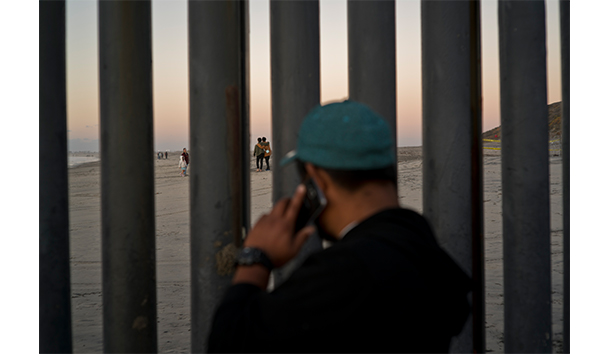Because of the Internet, old-fashioned travel agents are nearly as obsolete as ocean-going passenger liners. In their place a new sort of agent is arising: the migrant or asylum agent, formerly known as the people smuggler. The phenomenon has recently become a well-known one in Europe especially, as smugglers respond to the desires of their clients to be transported to one or another destination, much as wedding planners in the West arrange ceremonies in exotic places for their customers.
Increasingly sophisticated asylum seekers equipped with smart phones are researching possible destinations for application as carefully as well-to-do Western tourists have always researched their vacation ones. Among the numerous factors they consider are climate, language, the easy availability of welfare benefits, the established presence of their co-nationalists including relatives, employment restrictions on foreigners or the absence of them, whether a country’s welfare system is contributory or not, the availability of housing benefits and healthcare, and the gullibility of a nation’s asylum and immigration officials, to name only a few.
Spurred by the recent arrival on the southern coast of England of several hundred Iranian “asylum seekers” come across the English Channel in rubber boats from France (usually the area of Calais and its migrant camps), Sajid Javid, the United Kingdom’s home secretary, has (after a bit of pushing from Tory MPs) decided to employ the British Navy to help him crack down on what he colorfully and correctly calls “asylum shopping.” Asylum seekers, of course, are required by international law to apply to the first free country they reach. Today, they feel free (and are, in many instances) to compare the relative charms and generosity of the countries through which they are supposedly fleeing and apply to the government of whichever one best suits their fancy. In recent weeks both the Daily Telegraph and The Spectator have printed stories about asylum shopping, so the subject is beginning to get the attention it deserves.
On the other side of the Atlantic Americans are witnessing something similar, though in different form, that so far has gone unrecognized by politicians, federal agencies, NGOs, and the media. Still, many less influential observers in this country have doubtless noted the oddity of thousands of migrants and “asylum seekers” fleeing Nicaragua, El Salvador, and Honduras each year north toward the United States and a radically foreign people and culture—not south to Columbia, Brazil, Chile, and other well-to-do, comfortable, and relatively stable countries governed, for the most part, by the rule of law. Or even to Mexico, against whose public and civic corruption may be set her wealth and a language, ethnicity, and religion common to the migrants. When one considers that Mexico City made the caravaners a generous offer of asylum, jobs, and financial and social support to remain in the country, their determination to press on and apply to the United States for permanent shelter and protection seems unreasonable, as well as legally unjustifiable.
Unless, that is, one takes into account as well the unshakable preference immigrants, migrants, and refugees have shown for Nordic countries and societies generally, and in particular for Anglo-Saxon ones, however diluted their founding cultures and systems have become as a result of their generosity in taking in people of non-Anglo-Saxon origins. The U.K., the U.S., and Canada were established on the basis of British liberalism; and however much the rest of the world today may condemn the empires that British first, and later American, political and economic liberalism established around the world, there remains a certain magic attached to it, even for ignorant importunates from Third World societies who also recognize a soft touch, the result of liberal decadence, when they see it. Meanwhile, the body of asylum law needs radical and immediate revision by all Western countries, not least to put an end to asylum shopping and other and related abuses of an asylum system that is more accurately described as an asylum scam.

Leave a Reply